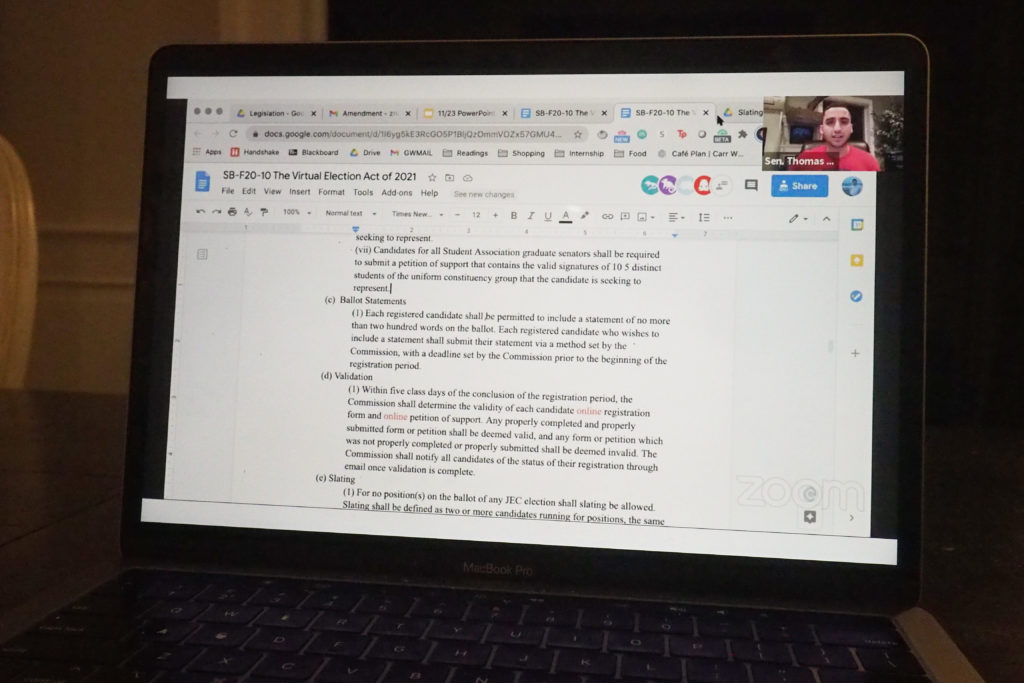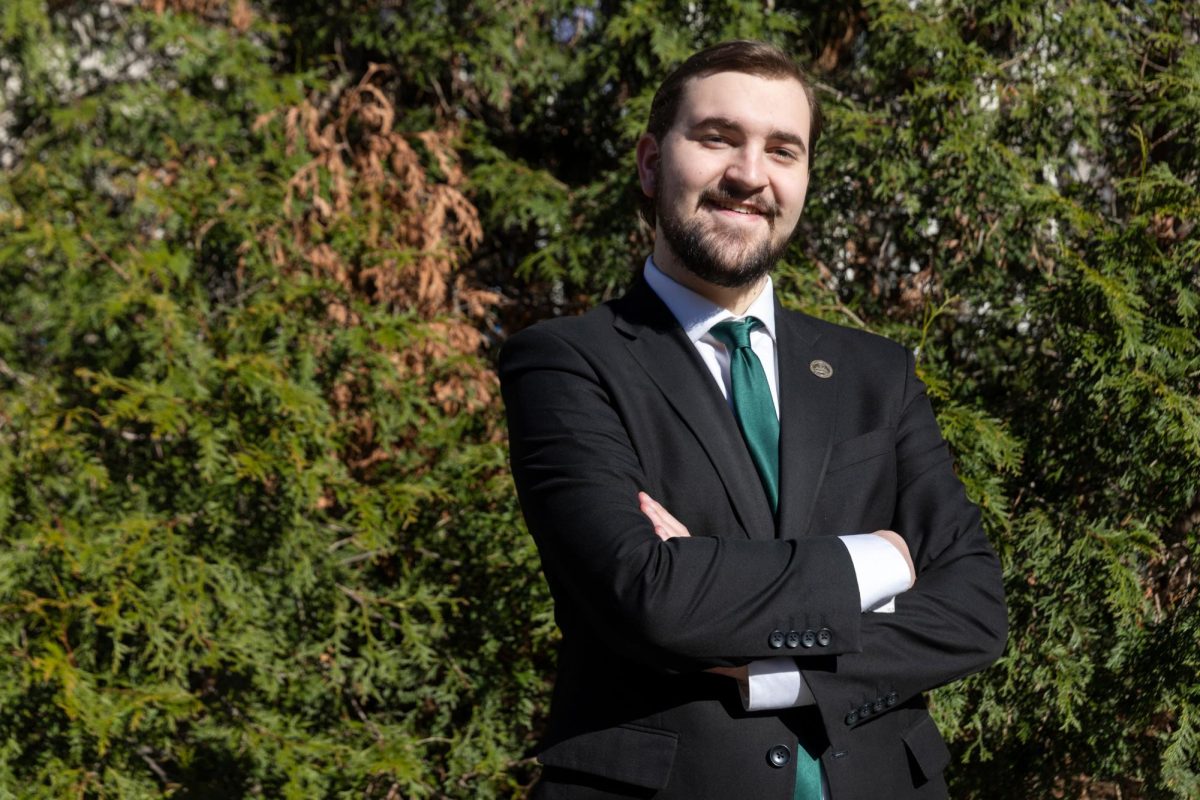The Student Association Senate made several short-term updates to the body’s bylaws to prepare for spring elections amid the COVID-19 pandemic at a meeting Monday.
Senators passed the Virtual Election Act of 2021, which temporarily updates the body’s bylaws for the spring to allow for a virtual election. SA Sen. Thomas Falcigno, CPS-G and the sponsor of the bill, said the legislation also allows for ranked-choice voting for constituencies that have more than one senator, removes at-large senate seats in line with the SA’s updated constitution and requires all write-in candidates to register with the Joint Elections Commission – the body that oversees SA elections – in advance of the election.
“Basically the legislation allows changes for us to hold a virtual election so anything that was in writing, anything that requires someone to be physically present, has been changed so that it can be done virtually,” Falcigno said.
He said the resolution cut the number of campaign signatures each candidate is required to attain to run for a position by half. He said the legislation also allows for slating – where candidates can run together on similar policies and platform points – for all positions in the upcoming election, but their names will not appear on the ballot as a pair.
Falcigno said the bill allows candidates to run a joint campaign, like creating a website together, but their names will appear separately on the voting ballots so students have the “freedom of choice” to vote for individual candidates instead of a joint ticket. He said slating could also lead to increased voter turnout because candidates could collaborate together and their platform can reach a broader audience.
“I think that when candidates slate together, particularly in a virtual environment, their message potentially can go a bit broader and bring in more support or bring in more voices to the conversations, and I think that that is a good thing for this University,” Falcigno said.
Before passing an amendment to the original bill, senators debated whether allowing joint campaigns could decrease diversity in the senate. SA Sen. Edward Rastgoo, ESIA-U, said upperclassmen who haven’t previously served in the SA would “likely be shouldered” out of SA positions because students within the SA can form slates before students outside the organization have that opportunity.
He said bigger communities on campus, like Greek life, could slate a “whole set” of candidates that are members of Greek life and therefore limit the diversity of the issues being presented in the senate.
“While I do think Greek life candidates are good, there needs to be diversity within the senate and getting communities like that to slate the entirety of the positions is probably not a good thing,” Rastgoo said.
Senators also unanimously passed an act to create a group in the SA that “fights” forms of faith-based hatred on campus and facilitates educational initiatives on interfaith issues for students and faculty.
Zachary Nosanchuk, the senate chief of staff and an endorser of the bill, said the task force is an extention of the anti-Semitism task force created last year where the student leaders will serve as a specific group in the SA to advocate for religious students. He said a “large amount” of students of faith feel out of touch with their religion while studying at GW.
“We continue to find that faith-based issues cannot be solved by contacting administration, rather it demands for us to change student/faculty culture ourselves,” Nosanchuk said.
The Faculty Senate voted to expand religious holiday accommodations for students earlier this month following SA advocacy to better represent students of faith.
Senators also questioned SA President Howard Brookins on his cabinet’s consideration to donate SA executive funds to D.C. communities directly surrounding campus. Brookins said the branch is looking to donate roughly $100,000 to organizations like GW Cares and mutual aid funds to support citizens struggling around the D.C. area – like individuals at tented camps across from the Elliott School of International Affairs.
He said the SA executive branch has roughly $80,000 and the remaining funds for donations can potentially come out of “rollover” funds from previous years.
“I think it’s important for us to understand, especially in this season of Thanksgiving, that the GW community does not exist in a bubble of solely students,” Brookins said.
SA Sen. Sebastian Weinmann, Law-G, said all students pay an SA fee of $3 per credit hour each year, and the “absolute least” the SA must do is “ensure” all unused funds are spent on students.
“We are elected to allocate student money among the students,” Weinmann said. “These donations in no uncertain terms steal student money away from students at a time when students are struggling more than ever before.”
SA Sen. Sam Packer, CCAS-U, said SA funds should go toward students, even if only one student is struggling to pay for food or facing any financial issues related to the COVID-19 pandemic.
“Our first priority has to be to ensure that the students have access to everything they need to not only survive but thrive while they’re students of our University,” she said.








